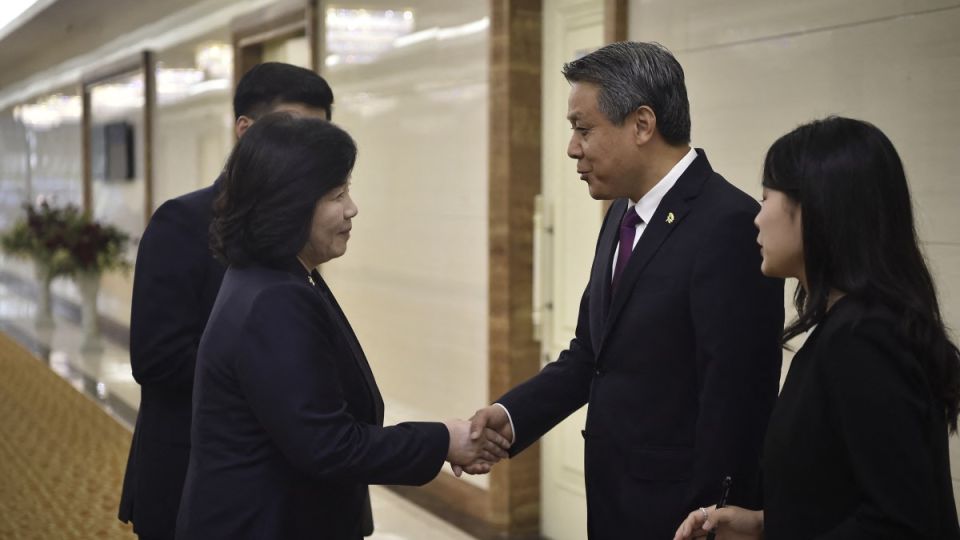September 30, 2025
SEOUL – North Korea’s Foreign Minister Choe Son-hui met her Chinese counterpart, Wang Yi, in Beijing on Sunday, pledging to deepen ties and jointly oppose “hegemonism” and “unilateralism.”
The phrasing is widely seen as a diplomatic consensus to their shared unease with US policies.
During the talks, Choe highlighted North Korean leader Kim Jong-un’s commitment to strengthening ties with China, calling the relationship the North’s “unwavering position,” according to Pyongyang’s state-run Korean Central News Agency on Monday. Wang was quoted by China’s Xinhua News Agency as reaffirming Beijing’s stance against “all forms of hegemonism” and as calling for expanded “strategic communications” and exchanges with Pyongyang.
Xinhua also quoted Choe as saying the North stands prepared to deepen cooperation with China in global forums, push back against “unilateralism” and great-power coercion, and advocate for a fairer world order.
The meeting came just three weeks after North Korean leader Kim Jong-un and China’s president, Xi Jinping, held their first summit in more than six years on the sidelines of a massive Beijing military parade. Kim, Xi and Russian President Vladimir Putin appeared together at the parade, a striking display of solidarity that suggested an emerging partnership of resistance against Washington.
KCNA said the two sides reached “complete consensus” on international and regional issues, but offered no details. China’s official Xinhua News Agency, by contrast, described the meeting as a “deep exchange of views on matters of mutual concern.” Observers noted the more measured phrasing could suggest differences in emphasis.
“North Korea said there was complete agreement on international and regional economic issues, while China emphasized that the two sides had an in-depth exchange of opinions,” Koo Byoung-sam, spokesperson at South Korea’s Unification Ministry, told a press briefing. “There appears to be a slight difference.”
Yang Moo-jin, an honorary professor at the University of North Korean Studies in Seoul, also said the North “placed emphasis on economic exchanges and cooperation,” citing areas such as food aid, tourism, the creation of a joint economic cooperation committee, its affirmation of nuclear weapons status and criticism of UN sanctions.
He added that if the meeting was held with potential US-North Korea or US-China dialogue in mind, the two sides likely had different calculations.
“North Korea probably sought to avoid provoking Washington, while China may have aimed to show coordinated pressure on the US and, at the same time, demonstrate its influence over Pyongyang,” he said.
The expert suggested that the talks likely touched on North Korea’s policy toward Washington and the possible resumption of dialogue with the US. In response to a US-South Korea three-stage denuclearization proposal, North Korea is expected to push instead for arms control talks under its self-declared status as a nuclear weapons state, while demanding the suspension of joint US-South Korea military drills and the withdrawal of American strategic assets. Such measures would also serve China’s regional security interests, according to Yang.
Sunday’s meeting was Choe’s second visit to China in less than a month, signaling Pyongyang’s renewed emphasis on cultivating ties with Beijing even as it deepens military cooperation with Moscow.
The talks also come amid speculation over whether Xi will visit Pyongyang next month to mark the 80th anniversary of the Workers’ Party of Korea. The celebration is expected to feature a North Korean military parade showcasing new weapons aimed at the US and its allies.
mkjung@heraldcorp.com


